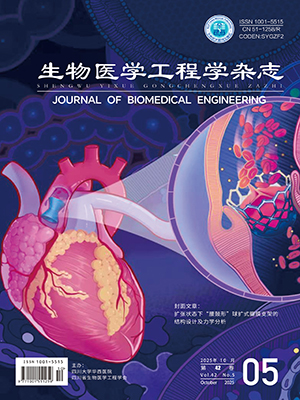The aim of this research is to investigate the preparation method of valve membrane in transcatheter bioprosthetic valve, and to study the effect of chemical modification and cutting technology to tensile property and suture force property of valve membrane. We carried out a series of processes to perform the tests, such as firstly to test the crosslinking degree of valve membrane using ninhydrin method, then to test the tensile property and suture force property by using Instron's biomechanical testing equipment, and then to observe the collagen fiber orientation in valve membrane using Instron's biomechanical testing equipment and using field emission scanning electron microscopy. The study indicated that after the chemical modification, the crosslinking degree, tensile strength and suture force strength increasing rate of valve membrane were 93.78%±3.2%, (8.24±0.79) MPa, 102%, respectively. The valve membrane had a better biomechanical property and would be expected to become valve membrane in transcatheter bioprosthesis valve.
Citation: CHENDakai, LIYu, LUOQiyi, LIUBaolin, CHENKangmin. Related Research on Mechanical Property of Valve Membrane in Transcatheter Bioprosthesis Valve Based on the Chemical Modification and Cutting Technology. Journal of Biomedical Engineering, 2014, 31(4): 801-805. doi: 10.7507/1001-5515.20140150 Copy
Copyright © the editorial department of Journal of Biomedical Engineering of West China Medical Publisher. All rights reserved




